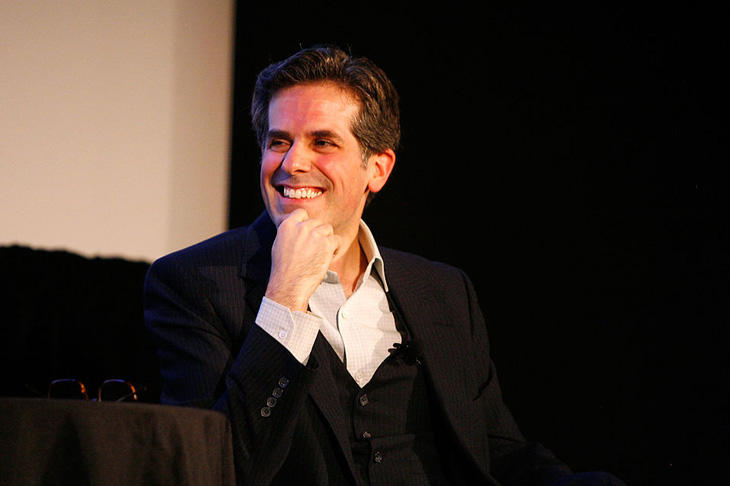According to Martin Amis in The Information, the last person to have read every book ever published was Coleridge. Faced with More Alive and Less Lonely, though, you might wonder whether there’s a new candidate in town. Certainly, Jonathan Lethem’s mind seems not so much well-stocked as bursting at the seams. A few of the 70-odd pieces gathered here do concern such mainstream figures as Dickens, Kafka and Melville (where Lethem appears to know all the books not just by, but also about, them). But many of the others may have even the most erudite of readers heading sheepishly for Google, as he considers the work of say, Russell Greenan, Bernard Wolfe or Tanguy Viel. At one characteristic point, he notes that the only real rival to John Franklin Bardin in the creation of waking nightmares is Cornell Woolrich; at another, that Walter Trevis’s novel Mockingbird is ‘the perfect bridge between Clifford Simak and Steve Erikson’. Meanwhile, one of the more earnest, if fairly baffling, essays ponders the metaphysical significance of Batman: ‘Batman is death. He’s death denied, or mediated through the crude morality of Fate.’
Admittedly, anybody familiar with Lethem’s fiction won’t be too surprised at how wide-ranging his interests prove to be. In his first novel Gun, with Occasional Music (1994), he set out ‘to locate the exact midpoint between [Philip K.] Dick and Chandler’ — which is why it features a Californian private eye tracking down a talking gangster kangaroo. Next came three science fiction works, before Lethem’s breakthrough book Motherless Brooklyn (set in the neighbourhood where he grew up) signalled a move into more orthodox literary territory. Nonetheless, ever since he got there, his realism has generally been accompanied — or, as he prefers to put it, ‘wrenched’ — by scenes, devices and occasionally superheroes from an impressive variety of other genres.
In fact, some of Lethem’s novels, including his most recent, The Blot, have perhaps suffered from his cultural omnivorousness, with the realism-wrenching and genre-blending coming to seem something like tics. In this book, however, where he’s simply enthusing about his many literary loves, rather than striving to incorporate them into his own fiction, it feels wholly admirable (if a little shaming).
And enthuse Lethem most definitely does. In one essay, he mentions the ‘rivalrous scepticism’ with which writers regard each other’s work. Yet at no stage does he ever display any. Virtually all of the pieces are written from the perspective of an unashamed fan — a perspective that he not only relishes, but champions: ‘Fannish feeling, like laughter or tears, is one of those things that make us human.’
Like all fans, too, he desperately wants us to share his passions. Many of the pieces were originally forewords to what he sees as unjustly neglected masterpieces (a word he’s happy to use). And even those that weren’t nearly always have the same aim of highlighting ‘writing I loved and wanted to recommend to someone else. That is to say, you.’
Naturally, it also helps that he writes so well. Recalling a 1985 reading in a New York bookstore by Anthony Burgess, for example, Lethem serves up a pretty unbeatable one-sentence summary of the man in action: ‘He pontificated, chain-smoked and wheezed, retailed anecdotes, was charming and spellbinding and ghastly.’
In the circumstances, then, it feels both ungrateful and slightly philistine to half-wish that Lethem had leavened his noble campaigning on behalf of the overlooked with a few more pieces about writers we know. And just to add ‘parochial’ to the charge sheet, it might have been particularly interesting if some of those were the now rather unfashionable Brits that he likes so much.
In 2012, Lethem presumably dismayed his more hipster followers by explaining that the authors who ‘formed my sense of what novels should feel like’ were such resolutely non-hipster types as Anthony Powell, Iris Murdoch, Anita Brookner, L.P. Hartley and Penelope Fitzgerald. (In what felt a bit like a game of How Far Can You Go?, he also expressed a preference for Barbara Pym over Thomas Pynchon.) Five years on, I’d have been quite happy if he’d applied his omniscience and perceptiveness to an appreciation of one or two of those here — even at the expense of his close readings of Malcolm Braly’s 1967 prison novel On the Yard, Vivian Gornick’s memoir Fierce Attachments or the ghost stories of Steven Millhauser.






Comments